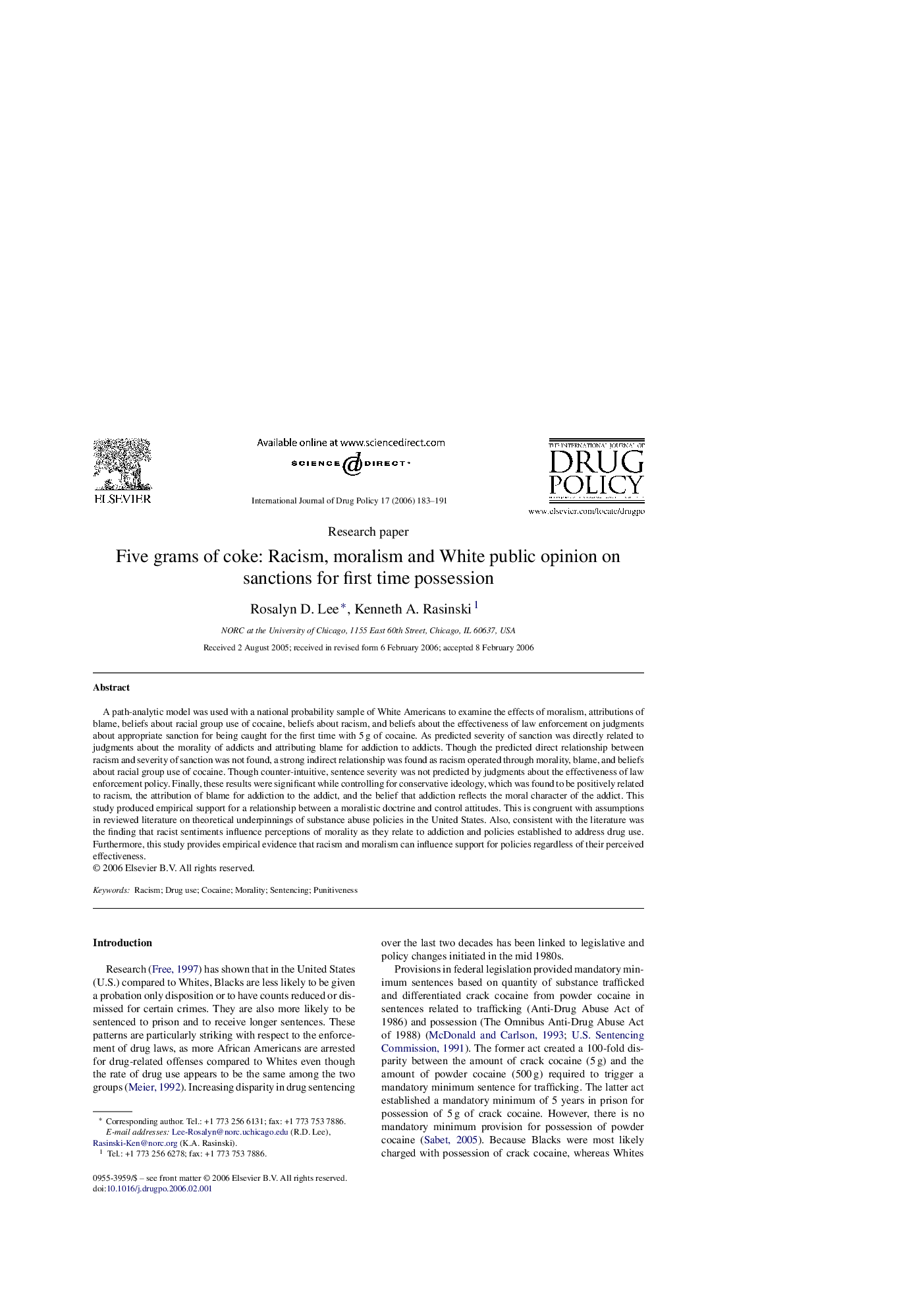| Article ID | Journal | Published Year | Pages | File Type |
|---|---|---|---|---|
| 1075722 | International Journal of Drug Policy | 2006 | 9 Pages |
A path-analytic model was used with a national probability sample of White Americans to examine the effects of moralism, attributions of blame, beliefs about racial group use of cocaine, beliefs about racism, and beliefs about the effectiveness of law enforcement on judgments about appropriate sanction for being caught for the first time with 5 g of cocaine. As predicted severity of sanction was directly related to judgments about the morality of addicts and attributing blame for addiction to addicts. Though the predicted direct relationship between racism and severity of sanction was not found, a strong indirect relationship was found as racism operated through morality, blame, and beliefs about racial group use of cocaine. Though counter-intuitive, sentence severity was not predicted by judgments about the effectiveness of law enforcement policy. Finally, these results were significant while controlling for conservative ideology, which was found to be positively related to racism, the attribution of blame for addiction to the addict, and the belief that addiction reflects the moral character of the addict. This study produced empirical support for a relationship between a moralistic doctrine and control attitudes. This is congruent with assumptions in reviewed literature on theoretical underpinnings of substance abuse policies in the United States. Also, consistent with the literature was the finding that racist sentiments influence perceptions of morality as they relate to addiction and policies established to address drug use. Furthermore, this study provides empirical evidence that racism and moralism can influence support for policies regardless of their perceived effectiveness.
